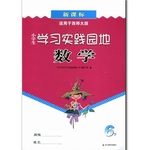题目内容
To his mind, the collaborative development of Beijing, Tianjin and Hebei province is to solve the problems _____ Beijing faces, such as overpopulation, traffic jams, and etc.
A. that B. whether C. when D. why
练习册系列答案
 百年学典课时学练测系列答案
百年学典课时学练测系列答案 仁爱英语同步练习册系列答案
仁爱英语同步练习册系列答案 学习实践园地系列答案
学习实践园地系列答案
相关题目

